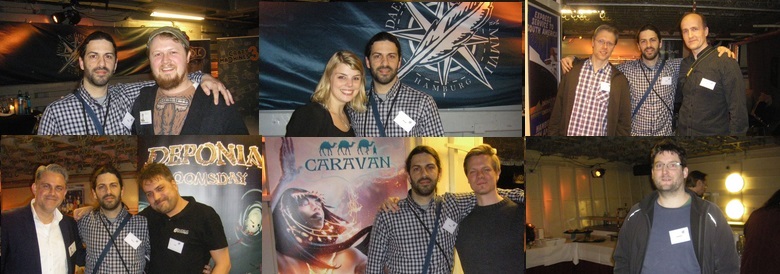
Interviews with the Daedalic Entertainment team
Την ελληνική έκδοση του άρθρου αυτού μπορείτε να τη βρείτε εδώ.
As I already mentioned in the first part of my article on Daedalic Days 2016, there was no way I would miss the opportunity to get to know many of the German company’s executives and not only. I had arranged in advance to prepare a small questionnaire for Carsten Fichtelmann and Jan Müller Michaelis, while the questions I put to Matthias Niebergall and Jens Kortboyer arose during the event.
As for Bodo Pfeiffer and Andreas Suika and their games, “Crazy Machines 3” and “The Long Journey Home” respectively, I may did not proceed in drawing up a questionnaire, but the about 40 minutes of hands-on I had with each one of these games indicates that even if they do not belong 100% to the field of my interest gaming, they managed to attract my attention. I imagine this is the best proof that they have much to offer to each genre’s fans.
We start with Jens Kortboyer, co-founder of it Matter Games and co-creator of “Caravan“.
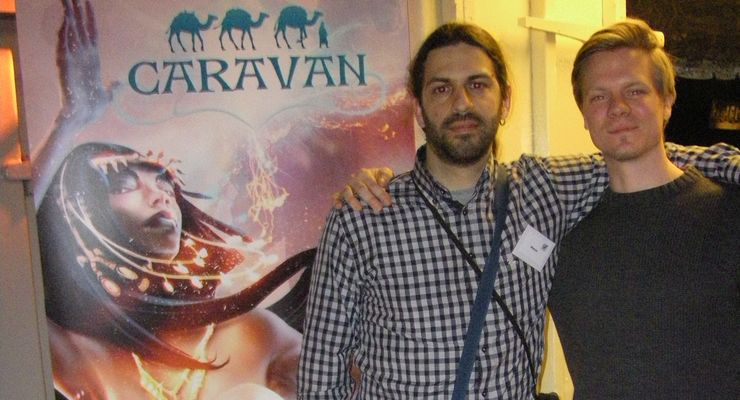
RQ: My first question won’t be an original one, but tell me how you came up with the idea of “Caravan” and then in touch with Daedalic Entertainment.
J.K: Actually that’s a good question and thanks for asking. We are a small studio in Berlin and up to now we were making games for small kids on mobile devices. But ultimately we come from the PC platform and we always had in mind to design something there one day, I think it’s a natural thing. So we discussed what we could come up with and what the market was in the need of and came up with the idea of “Caravan”.
But l also I had once read a book, where the protagonist joins a caravan and gets from Europe to Arabia and that book described all the challenges that caravan faced. So the more we discussed about it, it seemed like the right idea to create a game with that theme. The members of a caravan have a mission, they trade things, they face challenges and dangers, along the road they pick up travelers on locations an escort them before that land is unsafe, so from a developer’s perspective you always have to keep in mind the hero’s journey and what may happen in it.
Furthermore we thought the caravan theme is a setting that’s overlooked, something like an unexplored land, a very untouched scenario where we had many things to do. And then we thought of injecting into it the Arabian Nights folklore, so in five chapters we have a nice Arabian story and a very nice experience for players. And then the last thing we should take care of was how the game should look and feel. My father in law is a photographer and has pictures of Portugal, so one evening we were eating with my fiancée at her parents’ house and he showed some pictures from the interior of a famous building with this painted tapestry in the wall with oriental themes. At that exact time I made the connection in my head and I thought that we should catch that art style, it was exactly the concept we should draw for “Caravan”.
And then, you know, time flies, it’s been a while, we gave all this pitched document with the idea and the art style to our agents, they ran all around the world and finally they met with Daedalic Entertainment. We started having our first meetings by January 2015 and we immediately realized there was a click there. By February we had signed our contract and went into production. The great thing with a partner like Daedalic, which clearly is a story-driven and theme-driven company, was that we had the perfect match in our vision and we shared the same attitude with the theme. Of course they took a great risk with us, we are young developers, but they saw the passion and ambition we had and decided to get into it.
RQ: You just said your team consists of young developers. So what’s the average age of its members?
J.K: The three senior members of our team are close in age, we have previously worked in the past in a small company in Hannover, I have just turned 32 and the other two guys are around this age. The junior members of our team, who are really so passionate, just got out of university -Berlin has a great games academy- so they are talented, ambitious and very young people. It’s safe to say that around ten people are currently working on “Caravan”, with the majority being close to twenty years old or under.
RQ: How would you describe your game, in which genre does it belong? Which is its most notable element?
J.K: That’s another good question. I think it’s safe to say at first that it’s a very approachable trading simulator. Along the road of trading you have the adventure element with the linear story and the Arabian theme and then the RPG element, because you have six professions in the game you can put into your caravan, you have a merchant, a mercenary, a rogue and a scout and all this professions can be leveled up, while the characters can unlock skills and be equipped with items. So it’s mainly a trading simulator with adventure and RPG elements.
Following Jens Kortboyer was Matthias Niebergall, who had undertaken to inform us about the “Candle” game, of Spanish Teku Studios.
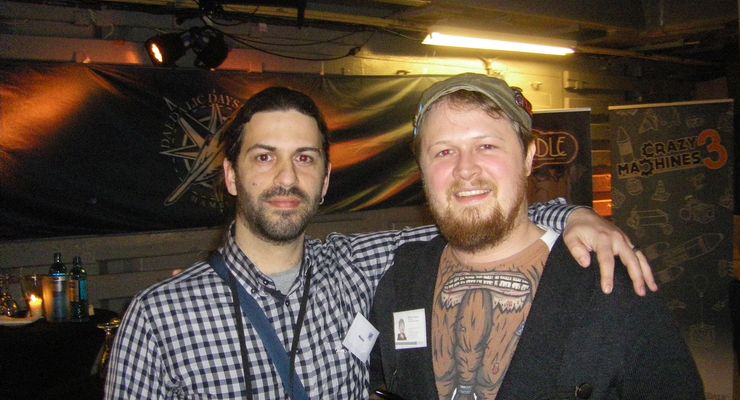
RQ: Tell us a few things about the production of “Candle” and the collaboration between Teku Studios and Daedalic Entertainment.
M.N: The basically idea came up when the two founders of the company met in university and one of them was creating a web comic series, telling the story of the main character and they thought the idea was interesting, so they decided make a game around that. Actually they contacted us and we thought the game was interesting, beautiful and very polished, since by that time it had already been worked for more than two years.
RQ: In a case like that, how does a publisher help a developer? What are the fields that require the publisher’s involvement?
M.N: Well, voice overs is one thing, localization and other language plans, of course there’s the PR and marketing assist. We are also helping in quality assurance with our Q&A department, our guys test the game and send their feedback on possible bugs to the developers, so they are various things we make for a game we get to publish.
RQ: Are you aware of the number of people who have been working on “Candle”?
M.N: At the moment the core team consists of 6-7 people, of course there has been also support from some freelancers who became part of the project for a specific time, helping in animation or songs, so overall the whole developer team was 15 people maximum.
RQ: The collaboration between a publisher and a developer comes to an end after a game’s release or there’s some kind of contract regarding future activity?
M.N: Usually when we decide upon projects and teams we pick the ones that we believe a longer relationship could work. So if there’s another project after the first one, especially an interesting one like “Candle” for example, of course we are interested and discuss about it. And then there’s always the possibility of a game’s console port, so after we are done with the PC version we are examining that option.
RQ: How many hours would you say one will need in order to beat “Candle”?
M.N: Since the game has some very difficult levels and some of the puzzles and enemies are very tough, I would say it depends. It could take 6-10 hours.
RQ: Which element would you say prevails in the game, the puzzle or the platform one?
M.N: The game mainly consists of three levels and I would say it focuses more on the puzzle element, the platforming aspects like jumping around and proceeding are very basic. However in the third chapter the platform mechanics are more present, since you need to take jumps in the right timing, you are chased by enemies and stuff like that, so it’s different compared to the previous two, it’ not so much focused on the use of items.
RQ: Since you have clearly expanded you publishing role as a company, how big would you say the influence of Daedalic Entertainment has been to small developers, in term of being encouraged by the its existence in order to finally move on with a game they had in mind?
M.N: Currently we are working with 8-9 different teams. It would be safe to say that 2-3 of these projects wouldn’t be here if a collaboration between the two studios hadn’t been established. An example of this would be “Valhalla Hills” that came out last year, I think without Daedalic’s involvement it wouldn’t be here today.
RQ: Can a publisher ask for a sequel in the case of a successful game even if a developer does not have something like that in mind?
M.N: Yes, it’s possible. Of course it depends on various things, for example if there’s a different story to be told, if they developer can evolve on the gameplay mechanics, the first game’s finale, but yes, it’s definitely something that can happen.
Immediately after I approached Jan Müller Michaelis, who replied to all my questions with excessive pleasure.
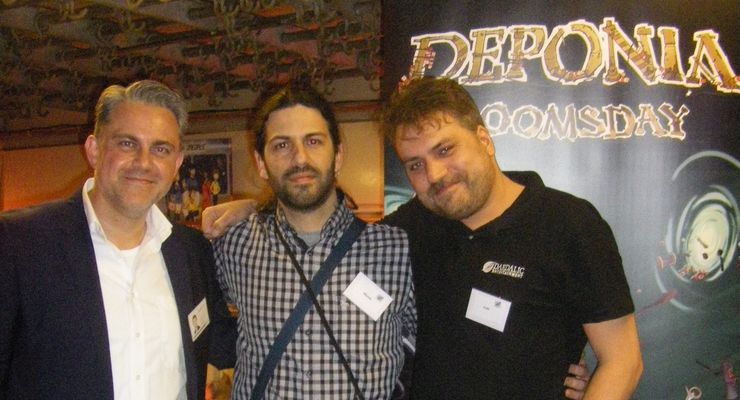 Carsten Fichtelmann (on the left) και Jan Müller Michaelis (on the right)
Carsten Fichtelmann (on the left) και Jan Müller Michaelis (on the right)
RQ: I will start with the most obvious question. Will “Deponia Doomsday” be the last game in the series or you leave an open window for one more sequel in the future?
J.M.M: When I was finished with “Goodbye Deponia” I really, really, strongly believed, without a shadow of a doubt, that “Deponia” was closed with the third part. I really thought there was no way to come back to the story. So if this fourth game works, I am really very careful to say that it’s the last one. Maybe the biggest possibility is to leave it for a long time, make something else and say maybe it’s possible to come back for another one.
RQ: What are the games that you would like to create sequels for?
J.M.M: There’s of course the sequel to “The Whispered World” in progress and this time I wasn’t a big part of it and I am looking forward to it very very very much, because from a graphical point of view it’s way beyond anything we have made so far, it’s really beautiful, breathtaking. In secret I wish I had been a much bigger part of this project, but, OK, they managed very well without me, so maybe I must leave that wish.
Of course I would love to come back to “Edna and Harvey” series and that’s because I know what I will do next and would love to see the characters. It’s always an option, I have thought about it many times, but it’s not something I believe will happen anytime soon.
RQ: Is there any modern adventure game that you would pick as the one you would like to be yours?
J.M.M: Oh, that’s a very nice question! There are a couple of games that I would love to be their designer, but I don’t think that I can say I would like to have made them, that’s not why I make games, just to have them in my record. I make each game according to my thought and feelings at that time, so I can’t say I would like to have made “Heavy rain”, because it would be an entirely different if it had been mine.
RQ: There’s a huge concern that “Silence-The Whispered World II” will be over-simplified, without inventory, maybe much easier puzzles, an entirely different game compared to its predecessor. Would you like to comment on that?
J.M.M: Yes, I know many people are afraid of that, but I don’t think the overall experience is too different from the original. It looks different of course but in its core it’s an adventure game and I think you will all quickly recognize it. It’s more intuitive to play, I personally like what they have done with the interface because in some way it connects you a little bit better to the real world, it does logical things.
RQ: There’s a common belief that “The Devil’s Men” will bring a new breath of air, since it will have different paths, according to the choices we will make. Would you say it’s the most complex game from Daedalic Entertainment so far?
J.M.M: If it comes out earlier from my next game it will surely do that. Of course I am kidding, it will definitely come out earlier. I always liked to do something like that, but it requires a huge amount of resources, since different paths will result in extra text and content and maybe lead to several more paths, so it requires a lot more work for every single path possible. There’s much complexity and I respect that Kevin took that road because I never dared to do it. Maybe I could do it for a small piece of the action, but for the whole game? Wow!
RQ: My last question may be unexpected, but I feel the need to ask you what went wrong with the Special Edition of “The Whispered World” and had that annoying clicking problem.
J.M.M: I am not aware of this! Does something like that happen really? I guess they wanted to keep me safe in creating the fourth “Deponia”, so they never told me anything on this! I am very sorry to hear that, it must have something to do with the evolution of the engine, it’s dangerous to bring older games to a newer engine, we must be very careful with that. I really hope it will be fixed in the upcoming future.
My interviews ended with the company’s CEO, Carsten Fichtelmann, who gave us some very interesting information.
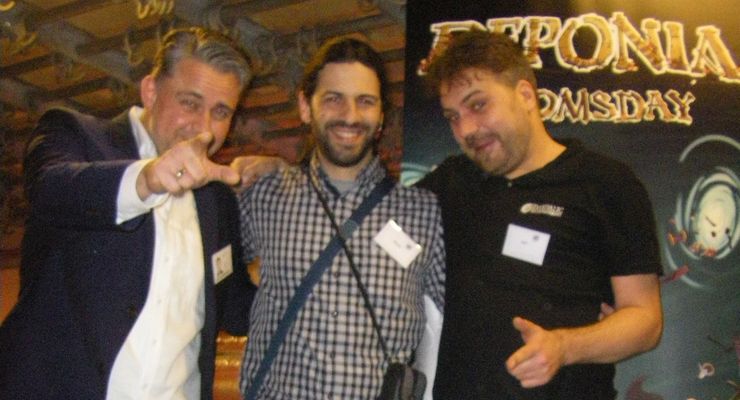
RQ: You used to work for six years at DTP Entertainment. How did you come up with the idea of establishing Daedalic Entertainment and making that transition?
C.F: I was only marketing director at DTP and after some years it seemed quite cooler to build my own company and not only market but definitely develop games, something that certainly wasn’t possible at DTP. At that time Poki was working as a short time intern at DTP and I told him I would creating my own company and would be cool if he joined me. At that time he already had “Edna and Harvey” at the works, as a study project. Luckily he agreed and we moved on.
RQ: What about the rate of Daedalic Entertainment’s growth? Can you describe it to us?
C.F: At first we were two people only and then, after receiving our first funding from the state of Hamburg for our prototype and a bit of consulting from other companies for PR marketing and moving on with two-three projects, by the end of the first year we made it possible to be around ten people, with three of four being the team’s core and the others just interns. And then, overs the years, more and more were getting into the company and nowadays we are around 140.
RQ: German studios -let’s focus on adventure gaming developers since we have many examples- support and help each other in any way they can, for example spreading the word about a Kickstarter campaign, even supporting it. How do you explain that, since one could say that they have conflicting interests?
C.F: I know many of those guys since we have attended the same developer conferences in the past, for example one in Berlin that’s held in April. With Florian Stadlbauer, the founder and CEO of Deck 13 we are in the German Games Association Board, I also know Jan Theysen from King Art Games, so we know each other and it’s pretty clear that whenever someone is asking help, the others will offer it. Of course there is also competitive situation and everyone is working on his own games, but internationally the market is big enough, but whenever there is a Kickstarter or a game announcement, we help each other. It’s good for everybody I guess.
RQ: We mentioned earlier in the event’s prologue that USA is your biggest selling market? In which other countries do your games sell well?
C.F: Yes, of course it is, especially combined with Canada it’s by far our biggest selling territory. The whole situation is a little bit different from game to game, for example maybe you would be surprised to know the sales that Blackguards made there, since it was based in the German pen and paper game, “The Dark Eye”. In spite of that it proved to be our most successful game there with 40% of its copies being sold made in USA, while at Germany the percentage was around 13%-14%. From the adventure games our biggest hit was the “Deponia” series. Normally after USA its Germany, UK, France and other european countries.
RQ: What about Russia?
C.F: Yes, in terms of units being sold, Russia is No 3, even No 2. But due to the different pricing there, revenue-wise it’s in fifth or sixth place.
RQ: You said that the “Deponia” series has sold about 2.2 million units. Would you like to mention some other successful games of yours?
C.F: It sounds a big number and it is a big number, but most of these sales were made while being in bundles or Steam sales, in 90% discount. Its full price sales were a little part of that number, so finally we can say that it’s quite a long selling game, but the money it brings us are not enough to fund a new game.
Revenue-wise “Blackguards” was our most successful title in Steam at all, with “Memoria” coming after that. These games had a high rate of full price sales. “Edna and Harvey” came out on Steam six years after its initial release in Germany but sold well, while “Harvey’s New Eyes” sold around 80.000 units in Germany as a retail game, before the almost full transition to the digital world.
RQ: Now that you mentioned it, give us a comparison between retail and digital sales.
C.F: When we first started we were very successful in local retail market, as a more German-focused studio back then. At that time, around 2008, 95% of our sales were made in Germany and in retail form. Today it’s the other way around, that 95% comes from digital sales. The retail market still exists but it’s a very tough situation with all the things you must take care of.
RQ: My last question has to do with your company’s expanded publishing role. You made some very good picks, like “Dead Synchronicity” from Fictiorama Studios and “Randal’s Monday” by Nexus Studios. What are your thoughts and what’s the risk in such a move?
C.F: At first all that we did was to translate and publish some games only in the German market, like “Machinarium” and “Tales of Monkey Island”. Then we decided to expand that role into a world-wide movement, but this is not always easy and that’s because you cannot predict gamers’ reaction. For example “Dead Synchronicity” was a very good, Daedalic-like game, not very easy to solve, so we decided to publish it. Unfortunately it did not sell well, only a few thousand units, so we had to say to the developers that we cannot put money in a second game, because we lost money with its first part. I know they want to make a second game, it was not their fault that it did not sell well, because it was a really good adventure game, it’s just that we cannot do anything with it anymore.
Another example would be “The Journey Down”. The first episode was good, sold well, the second part was even better but it did not have the same success at all, as it sold around 80% less units than the first episode, so the developers had to seek for funding on Kickstarter for the third one. It’s a tough business and we cannot predict the market, as we now see ten games coming out every day on Steam.
Another example would be the German localization of “Tales of Monkey Island” which sold really well, while “Sam and Max” and “Wallace and Grommit” did not work out. It’s like playing with dice, you can never foresee the result and it’s really difficult to market an adventure game.
Of course Metacritic scores play a big role in all this. In order to review an adventure game you must like adventure games. Maybe it could be OK to say that “The Whispered World” is a bit boring because it has a slow pace and no action, but the thing is that the reviewers who gave it very low scores in fact did not like adventure games. In my opinion, you can’t be an adventure game reviewer if you haven’t played old Lucasarts and Sierra games. Nevertheless, “The Whispered World” was a sales winner.
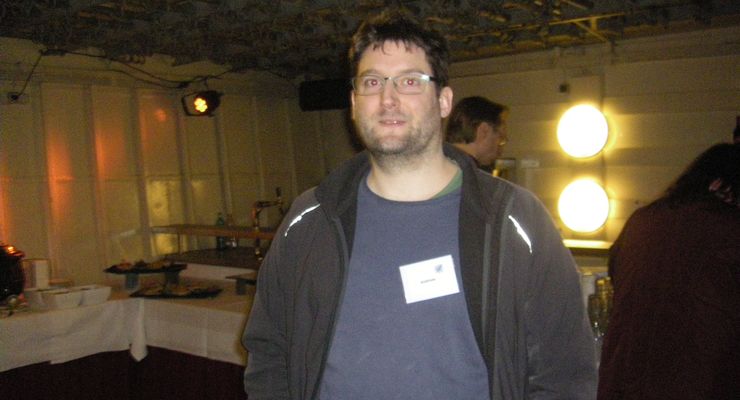 Andreas Suika
Andreas Suika
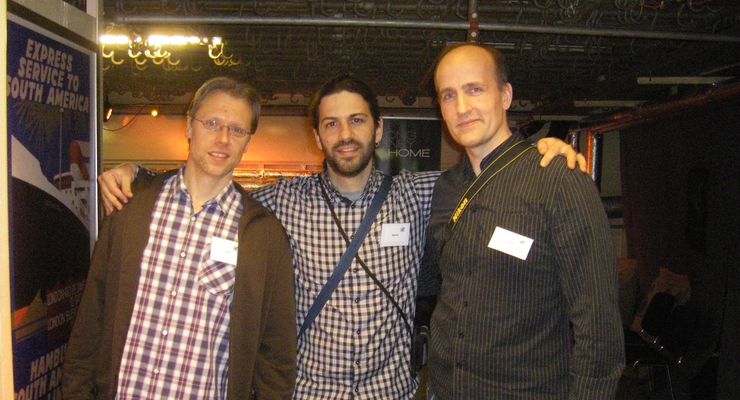 Falk Möckel (on the left) and Bodo Pfeifer (on the right)
Falk Möckel (on the left) and Bodo Pfeifer (on the right)
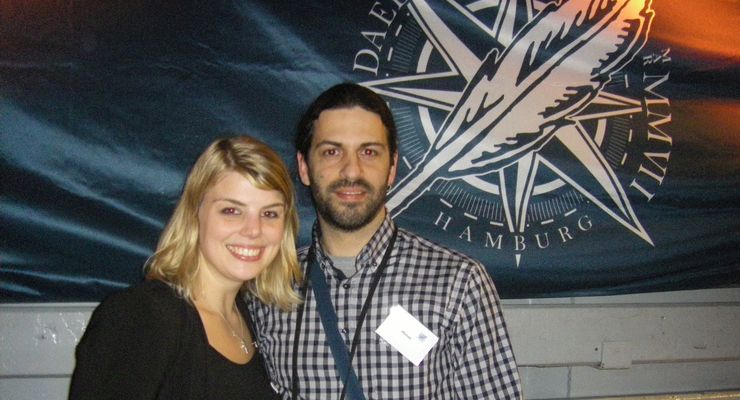 With the PR of Daeadalic Entertainment, Sandra Friedrichs
With the PR of Daeadalic Entertainment, Sandra Friedrichs
On a personal level I certainly learned many things during my presence in this event, I closely saw new and ambitious games, I met with many interesting personalities and generally I had a very beautiful and constructive experience. I hope you had fun too, reading my two articles on Daedalic Days 2016!
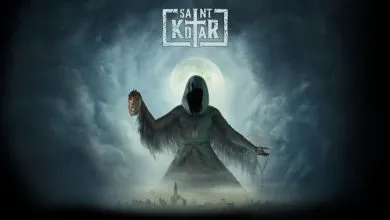

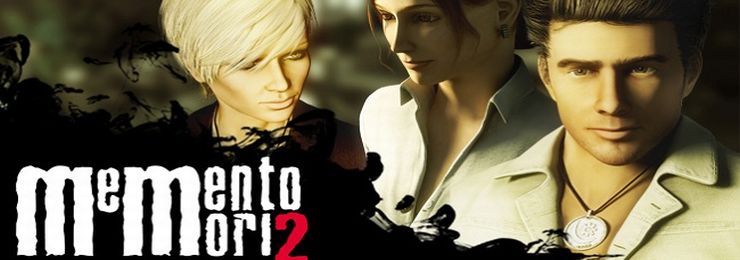
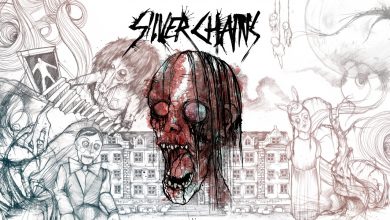


Βλέπω τα σχέδια για παγκόσμια κυριαρχία μπήκαν σε εφαρμογή.. Εύγε!
Μας κατάλαβες μπαγάσα….
Well done Manos, congratulations, very good interview 😀